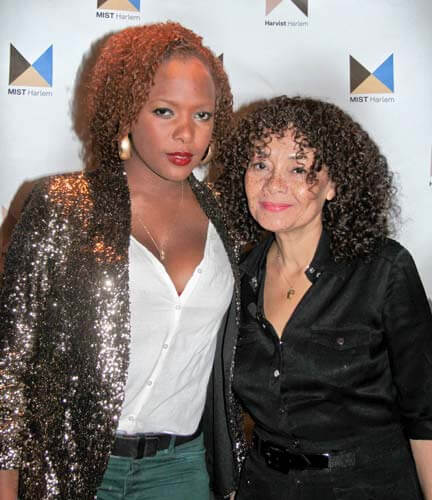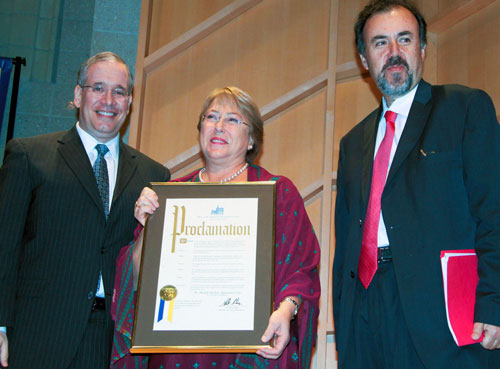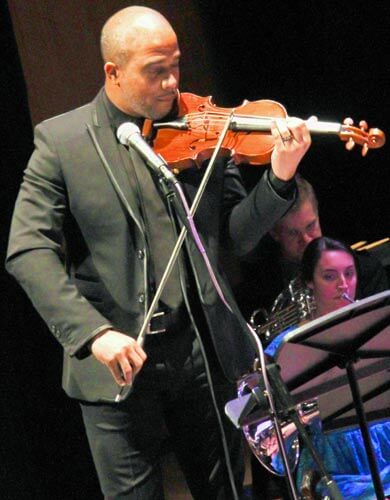“Come on America, it is 2011 and we know this is the most outrageous, the most blatant attempt to keep communities of color, black and brown people from coming out to vote in 2012,” Lillian Rodriguez Lopez, Hispanic Federation president emphatically said on election day Nov. 8.
Lopez expressed this view on the steps of City Hall where major activists, labor and civic leaders called for action to stop attacks on voting rights.
This call to action was held on New York City’s off-year lackluster election day that had no major ballot initiatives and uncontested races and in Queens and Brooklyn where the sole seats on the ballot were judgeships.
Leaders from a coalition of nearly 20 groups announced the “Stand for Freedom” campaign and a major mobilization on Dec. 10–United Nations Human Rights Day–to protest the attack throughout the country on voting rights.
NAACP President Benjamin Todd Jealous was among the roster of speakers in launching this nationwide effort to stop changes to state election laws that would suppress the rights of millions of Americans to vote in 2012 and beyond.
“We are in the midst of the greatest coordinated legislative attack on voting rights since the dawn of Jim Crow,” said Jealous, paralleling these changes to a reincarnation of poll taxes and literacy tests created after the 15th Amendment guaranteed ex-slaves the vote, which suppressed the voting numbers among people of color.
Eight states now require photo voter IDs, six can request them, and a whopping 22 states have photo voter ID legislation proposed. New rules will require voters to obtain and present official photo ID in order to cast a ballot. New laws significantly cut early voting and Sunday voting opportunities as well.
The new laws will disproportionately affect populations who do not have IDs that comply with the strict rules, particularly African Americans, Latinos, Asian American, Native Americans, seniors, students, and working women.
Voters in some states can request free photo IDs from state motor vehicle departments, the Stand for Freedom campaign points out that in order to obtain this ID, underlying documents can cost money such as birth certificates and may prove an impediment.
According to the NYTimes, supporters of new legislation have advanced in 13 states over the past two months with states claiming that new rules prevent voter fraud. Opponents content they created roadblocks to deter voters.
The Brennan Center for Justice released a report stating the battleground states of Ohio and Pennsylvania were among those actively moving forward on voter ID legislation.
“Instead of getting in the way of civic engagement, we should be working together to encourage all Americans to exercise their right to vote,” said New York Civil Liberties Union Executive Director Donna Leiberman.
President of the NAACP NYS Conference Hazel Dukes added, “It is truly disheartening to see that nearly 50 years after passage of landmark Civil Rights legislation, our nation has not fully embraced the idea of change and equality.” She adamantly pronounced that this movement to insure voter rights is steadfast.


























